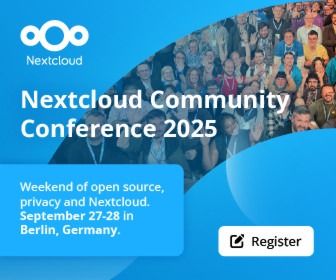How closely did you follow the news about Linux and free and open source software this week? You can get an idea about how well informed you are (and have some fun in the process) by taking our weekly Open Source News Quiz. Once you’re done, scroll down to the comments section and let us know how you did!
Results
A big thumbs up to you. You did good!
Oh well. Maybe next week.
#1. What Linux distro that came out with a new release on Friday, recently announced plans to quit being based on Debian and become an independently developed distro?
Deepin was originally based on Ubuntu, but in 2015 switched to Debian as it’s upstream source. In a blog published on August 14, devs announced that starting with deepin 23 (which is scheduled to be previewed before year’s end), the distro will no longer be based on an upstream distro, but will be developed directly “from the Linux kernel and other open-source components without relying on the communities of upstream distributions.”
The distro has also announced that with deepen 23 it will introduce a new package format, Linglong, which will be similar to Flatpak, Snap, and AppImage.
#2. What major Linux distribution has announced that beginning with its next major point upgrade, it will no longer support the GTK2 toolkit?
The answer is Red Hat Enterprise Linux, which will remove GTK2 in RHEL 10.
This isn’t really a big deal for a whole lot of reasons. For starters, RHEL 10 isn’t scheduled for release for about another three years, and beside that, GTK 2 was replaced by GTK3 more than a decade ago, and even GTK 3 has been eclipsed by GTK 4, which was released a couple of years back.
In other words, if you’re a RHEL desktop user, you won’t even notice.
#3. What minified version of Kubernetes became available as a “strictly confined snap” on August 26?
It’s Canonical’s MicroK8s.
According to a blog published by Ubuntu, strict confinement “is a snap confinement level that provides complete isolation, up to a minimal access level that’s always deemed safe. Strictly confined snaps can not access files, networks, processes, or any other system resource without requesting specific access. Strict confinement uses security features of the Linux kernel, including AppArmor, seccomp, and namespaces to prevent applications and services from accessing the wider system.”
#4. What Linux desktop has issued a tool for collecting telemetry data to be sent back to the project’s developers?
It’s Gnome, and before you get irate and start blowing up your desktop install, the program — designed to help Gnome devs figure out how to give you a better desktop experience — is entirely voluntary. In fact, it’s so voluntary that the user has to install gnome-info-collect tool, the small client-server command line application that anonymously collects data and sends it back to Gnome, as it does not and will not come preinstalled in any Gnome version.
Gnome devs will use the data it collects to determine where resources should be invested to improve the Gnome experience.
You can read more about it here.
#5. What Linux distribution announced this week that it’s looking at ways to make it easier for users to install non-free firmware when installing the operating system?
The answer is Debian, which has offered two installation images, one which is easy to find but only contains free software, and another with is rather hidden and difficult to find, which contains not only the free and open stuff, but all of the non free stuff you’re going to need to have a good computing experience.
While this poses a difficulty for everyone but the “only free and libre” set, it’s especially difficult for new users, who may not even understand the free versus non-free jargon, nor its implications.
You can read more about it here.
#6. What gaming platform that runs on Linux let it be known this week that there will definitely be Version 2?
That would be Steam Deck, which should come as no surprise to anyone who’s been watching the gaming arena lately. We learned the news from Gaming On Linux, who noted that Valve (the company behind Steam and the Steam Deck) said in a new Steam Deck booklet that they intend for Steam Deck 2 to be “even more open,” which is definitely welcome news from our perspective.
This is probably well down the road, however, as the folks at Valve are busy making improvements to Steam Deck 1 on their feet, even as they’re shipping the well-received product.
#7. What country announced this week that all government funded research should be immediately available to the public at no cost?
Believe it or not, it’s the United States.
Techdirt reported on Thursday that “the Office of Science and Technology Policy at the White House announced that they were updating policy guidance to mandate that all taxpayer-supported research should be immediately available to the public at no cost. According to the actual policy guidelines, US departments and agencies have until the end of 2025 to make this change (though, it’s not clear that there’s any remedy if they don’t).
We say, it’s about time.
#8. What chipmaker this week announced Pathfinder, a new integrated developer environment for RISC-V developers?
The answer is Intel, which in February jumped on the open source RISC-V bandwagon big time by joining RISC-V International and pledging to spend $1 billion advancing the open source silicon architecture.
“With Intel Pathfinder, users will be able to test drive pre-silicon concepts on Intel FPGAs or virtual simulators. There should be tremendous value for pre-silicon architects, software developers and product managers looking to prove out use cases upfront in the product development lifecycle’, said Vijay Krishnan, General Manager, RISC-V Ventures at Intel Corporation.
You can read more about Pathfinder on this blog from RISC-V International.










